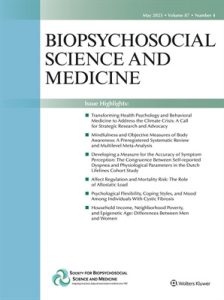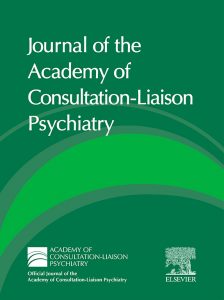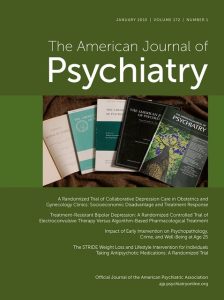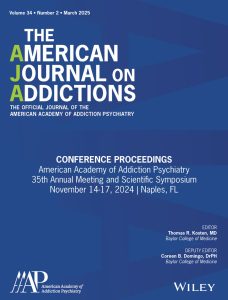Authors: Aranka Ballering, PhD, et al.
Abstract: The researchers aimed to assess whether a symptom perception accuracy measure can be derived from routinely collected general population cohort data.
They combined information on self-reported dyspnea and physiological parameters from the Lifelines Cohort Study to obtain a symptom perception accuracy measure. Using principal component analysis of available psychosocial variables known to correlate with symptom perception, they derived three compound scores reflecting negative affect, fear of illness, and worries of contracting disease. They used multi-nominal regression analyses to calculate the probability of self-reported dyspnea being correctly classified based on FEV1%pred and body weight. They showed that a symptom perception accuracy measure based on congruence between physiological parameters and self-reported dyspnea can be developed.
“People differ in their experience of symptoms in the presence of pathological processes,” say the authors. “In other words, often a discrepancy exists between objective bodily assessments of dysfunction or pathology and the self-reported symptoms that people experience due to these. This discrepancy has been found across multiple medical domains, such as orthopedics, diabetology, and pulmonology.
“It is pivotal to obtain insights into factors that determine people’s symptom experience, especially since one’s quality of life, but also treatment decisions, depend on the severity of the symptoms reported by the patient.”
The lack of easy-to-use measures for the accuracy of somatic symptom perception hinders the possibility of conducting longitudinal studies on factors influencing symptom perception processes, say the authors. The inclusion of a measure for the accuracy of somatic symptom perception in cohort studies would allow for studying elements of the predictive processing theory throughout the life course, the experiences that shape symptom perception, and their interaction with genetic factors contributing to symptom perception.
Importance: This study shows that the usability of a measure for the accuracy of symptom perception, based on the congruence between physiological parameters and self-reported respiratory symptoms, remains limited. Methods to assess individualized symptom perception need to be developed for use within large cohort studies.
Availability: Published by Biopsychosocial Science and Medicine.






